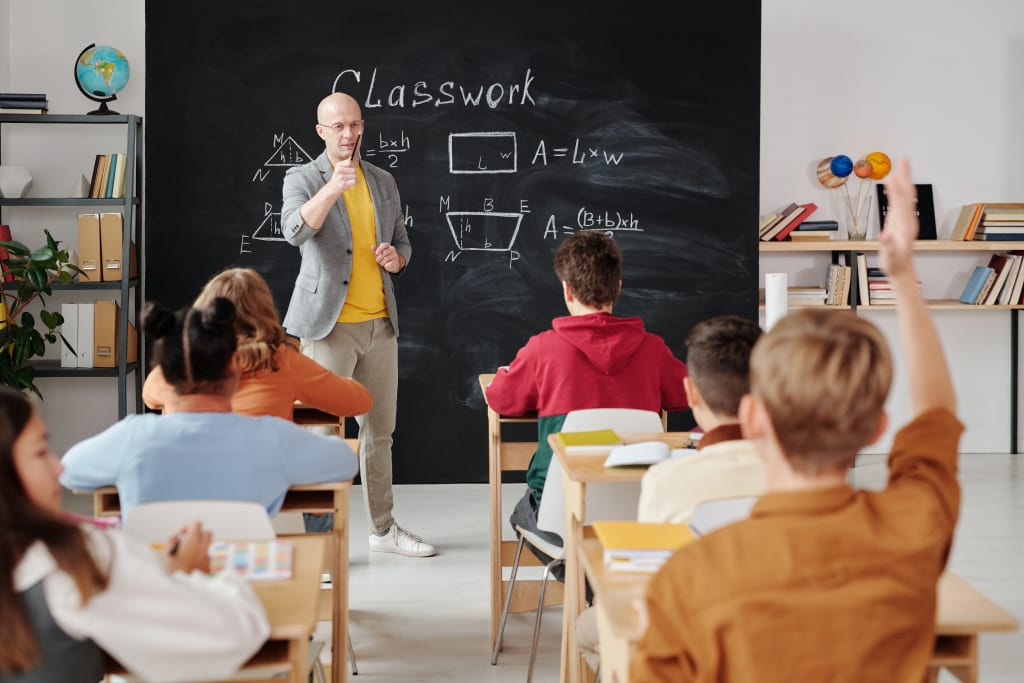The Future of Education
The way we learn will never be the same

The Future of Education
The future of education is likely to be shaped by a combination of technological, societal, and economic factors. As such, it is difficult to predict exactly what the educational landscape will look like in the coming years. However, here are a few potential trends that could shape the way we learn in the future:
Increased use of technology
It is likely that technology will continue to play a significant role in education. This could take the form of more widespread use of virtual and augmented reality for experiential learning, or the use of artificial intelligence to personalize and optimize learning. Online learning platforms, such as MOOCs (massive open online courses), may also become more prevalent, making it easier for people to access education from anywhere in the world.
Blended learning
Instead of traditional classroom-based learning or fully online learning, the future of education may involve a blend of both. This could involve a mix of in-person and online instruction, or the use of technology to supplement traditional teaching methods.
Greater emphasis on skills-based learning
In a rapidly changing world, it is important for students to develop a range of skills that will be useful in a variety of contexts. As such, the focus of education may shift away from rote memorization and towards skills such as critical thinking, problem-solving, and collaboration.
New fields of study
As society and technology evolve, new fields of study will likely emerge. For example, the growing importance of artificial intelligence may lead to the development of new programs in AI and machine learning. Similarly, the increasing awareness of environmental issues may lead to a greater focus on subjects such as sustainability and environmental science.
Changes in the way we assess learning
Traditional methods of assessment, such as exams and essays, may be supplemented or replaced by alternative methods that better reflect the skills and knowledge students have acquired. For example, portfolios of work or project-based assessments may become more common.
Changes in the way we fund education
The high cost of education is a significant barrier for many people, and it is likely that the way education is funded will change in the future. This could involve a shift towards more affordable or free online learning options, or the use of alternative funding models such as income-based repayment schemes.
Greater focus on lifelong learning
With the pace of change increasing, it is likely that lifelong learning will become increasingly important. This could involve more opportunities for people to return to education later in life, or the adoption of more flexible learning models that allow people to learn at their own pace.
Increased collaboration between education and industry
In the future, it is likely that there will be a greater emphasis on the practical application of knowledge and skills, and on ensuring that education is relevant to the needs of industry. This could involve closer collaboration between education institutions and businesses, or the development of more industry-focused educational programs.
The Potential
The changes outlined above have the potential to significantly alter the way humanity thinks about and approaches education. The increasing use of technology in education could lead to greater accessibility and personalization, making it easier for people to learn at their own pace and in a way that meets their specific needs and interests. This could lead to a more educated and informed society, with individuals better equipped to adapt to and thrive in a rapidly changing world.
The emphasis on skills-based learning could lead to a greater focus on practical, applied knowledge, rather than theoretical or abstract concepts. This could lead to a society that is more focused on problem-solving and innovation, and less reliant on traditional ways of thinking.
The changes in education outlined above have the potential to significantly alter the way humanity approaches learning and knowledge. While it is difficult to predict exactly how these changes will play out, it is clear that they have the potential to shape the way we think, work, and interact with the world in significant ways.
About the Creator
Kahi Bradshaw-Williams
Hey there! I'm Kahi, a tech content writer and web designer with a love for all things tech and science.
Official Science Communicator
Check Out my services:
Web-design: https://etsy.me/3Gckpgv
Writing: https://www.fiverr.com/share/YQmZwK






Comments
There are no comments for this story
Be the first to respond and start the conversation.